A vegan philosopher on the morality of eating plants
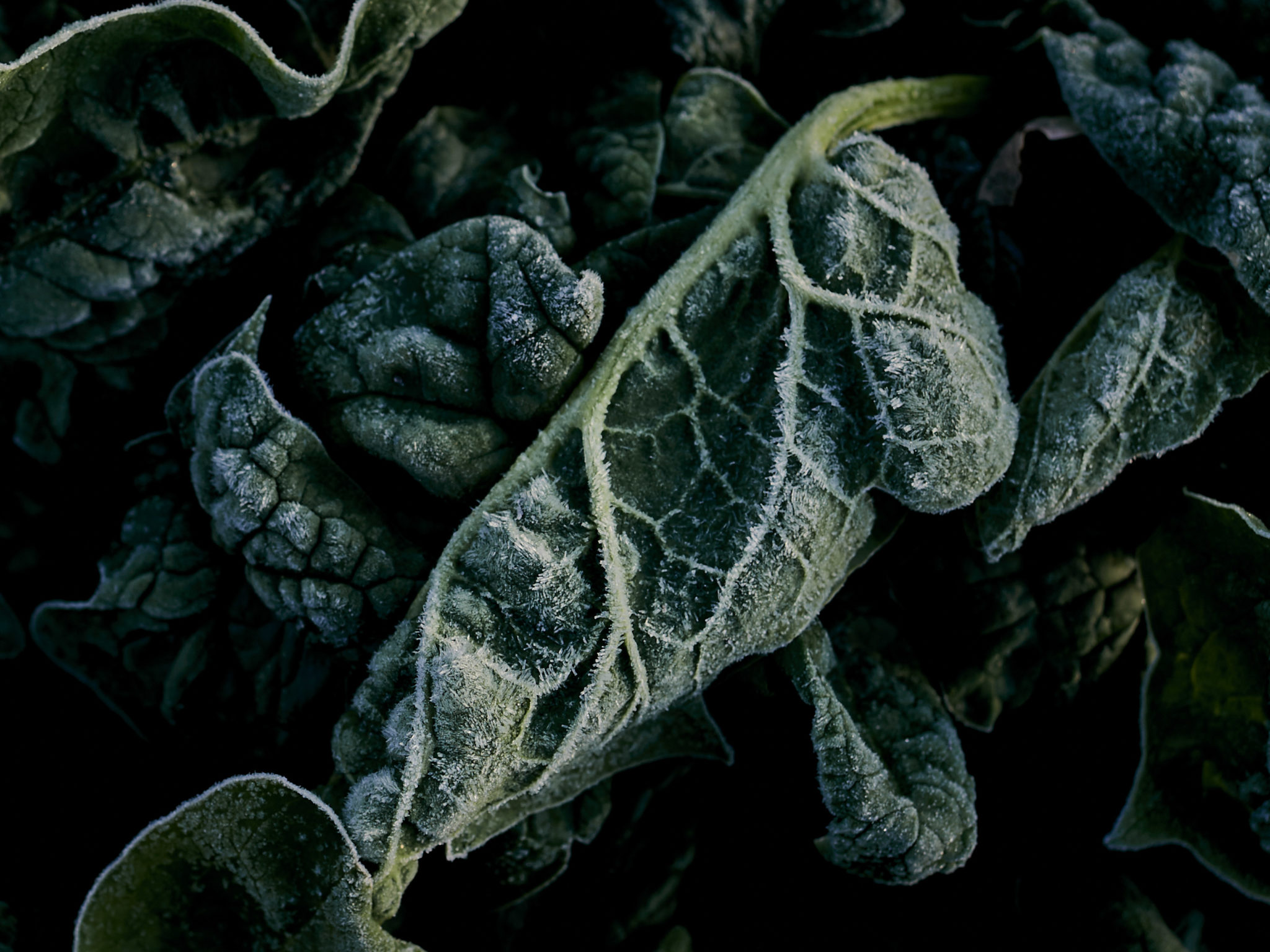
In the last several decades, research into the lives of plants has begun to change the terms of the debate over the ethics of eating. Vegans and their philosophical predecessors have long argued that there is good reason for leaving the bodies of animals off of our dinner plates. But new research in biology, as well as in philosophy, is putting the logic (if not the conclusions) of these approaches into question. This new understanding of plant life requires us to reframe the vegan moral lens, argues Grand Rapids-based vegan chef and philosopher Evan Scott Edwards, Ph.D.
Like many vegans my age, I was introduced to the theory of veganism by the activism of groups like PETA in the mid-aughts, who trace their theoretical position to the work of Australian philosopher Peter Singer. In Singer’s landmark 1975 text, Animal Liberation, he makes a case against the use of animal bodies for our nourishment and enjoyment by arguing that there is ultimately no qualitative difference between human and non-human animal life when it comes to questions of suffering. Consequently, PETA’s tactics during this era were to put animal suffering on display in images of gruesome factory farms and slaughterhouses.
The vegan will argue that what is essential in the question of justice in eating is not whether the thing on our plate belongs to a particular species, but whether it has a capacity for suffering that we can ourselves understand through sympathy.
If we asked, for example, whether it would be just to subject a human to the conditions of a factory farm, we would of course say “no,” since we feel that the suffering of the other is real. We recognize in them a capacity for physical, emotional, and spiritual suffering which should elicit at least the abstract understanding that what we are doing is wrong.
The vegan argues that if we ask the same question about the suffering of a cow, we have no good reason to come to a different conclusion, because animals also have a capacity to express, experience, and — more generally — be subject to suffering.
The emphasis on the recognition of the capacity of the other to suffer in Singer’s thought is attributable to the influence of the Utilitarian ethics most clearly expressed in the work of Jeremy Bentham and John Mill. For Mill, an action is judged according to its tendency to produce pleasure and remove pain for all parties involved. He argued that there was no amount of enjoyment we could get out of eating even a very well-cooked steak that would outweigh the death sentence — with its accompanying pain, fear of death, grief at being separated from family, etc. — to which such a meal subjects the cow.
As it emerges from the Western moral tradition, it appears that the entire logic of veganism is concerned with the reduction of suffering — a logic that fits well with the culture of veganism in which I grew up, with its emphasis on showing the suffering of animals in expository undercover videos, public demonstrations involving fake blood, and so on. For this strain of veganism, the removal of things from our plates is equivalent to a reduction of suffering in the world around us.
But notice that this all hinges on a similarity of experience and an expanding sense of the scope of moral consideration. We begin by fixing our moral gaze on beings that are most like us (other humans that look and live like us), then push past accidental attributes to beings which are not just accidentally like us (i.e. get over racism, sexism, classism, etc. and begin to consider the moral value of any human being whatsoever), and finally consider other non-human forms of life that share our capacity to suffer (animals with a central nervous system, and “perhaps even insects” as Singer suggests). These streams of thought successively include other forms of life according to their similarity to our own being. In other words, they base the criteria for moral consideration on a similarity to an essentially human experience.
Because we have to eat something, however, the veganism that emerged in the late 20th and early 21st century continued to place a fairly firm line — except for the never-ending debate over honey — between that which is acceptable food (plant and fungal forms of life) and that which isn’t (animal forms of life); recognizing the suffering of animals as morally unjust and that of other forms of life to be justified.
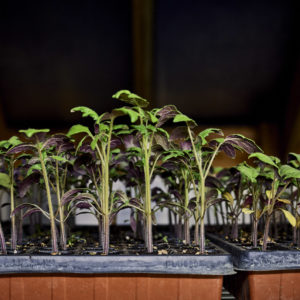
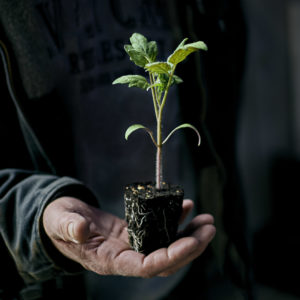
The problem is that plants, unlike animals, are not just incidentally but radically different forms of life from human beings. Their modes of sensing the world, reproducing, growing, thinking, and socializing bear little to no analogy with that of animal life; and yet, as an expanding body of research in biology and philosophy is starting to show, this doesn’t mean that they don’t have mechanisms for experiencing these fundamental markers of meaningful life. Because of this radical difference, any moral claim that they could make upon us would be fundamentally different from the claims made upon us by an animal, which has a voice to express suffering, has a face, and has eyes into which to gaze. Plants do not suffer in a manner analogous to our own, and any comparison between our suffering and that of plants borders on absurdity. To even call the experience of plants “suffering” is, as vegans will point out, misleading, if our understanding of suffering remains grounded in our own experience of what that term signifies.
What this means is that considering the ethics of eating plants fundamentally breaks the logic of food ethics as it is typically framed by veganism. It will not suffice to continue expanding the scope of moral consideration further and further, as vegans do, for two reasons. First, the radical difference between plants and ourselves makes it impossible to make the comparison between our suffering and that of plants, the way we can with animals. Second, whereas when we expand moral consideration to animals, veganism institutes a ban on consumption, the same cannot apply if we were to expand consideration to plants because it nevertheless remains the case that we need to eat something if we want to maintain our own existence.
The radical Otherness of plants requires us to consider the ethics of eating without resorting to subtraction, without simply removing things from the dinner table on the ground of abolishing suffering. Since, as I argue in my book, Autotrophy of the Other, to be alive means above all that you at once need to be nourished and that your body is potential nourishment for some other Earthling, then regardless of one’s eating habits, life is always the death of another, and vice versa.
Veganism and all of the traditions on which it depends ground their position by asking us to choose what kind of suffering is just and what is not, and on this ground maintain the dividing line between animal and plant life. And yet, as Michael Marder argued in a debate with vegan theorist Gary Francione, “Western philosophers have thought about plants at best as deficient animals, and therefore the violence against animals was magnified manifold when it came to plants.”
In other words, because of the Western tradition, we have misunderstood plant life, and as a result, the instrumentalization of plant life has far outpaced that of even other animals. Marder continues: “If vegans subscribe to this position, they appear still to operate in the spirit of the very philosophical tradition that has devalued animal lives.”
This may serve to explain how the logic of veganism, particularly under the capitalism of the early 21st century, has produced such a proliferation of forms of meat-like substance and other vegan foods that often disconnect consumers from the source of their food. It explains many vegans’ assent to the large-scale monoculture agriculture that produces the raw materials for not just omnivores but vegans as well. The being of plants, falling on the wrong side of the dividing line between the things which can and can’t be instrumentalized, Marder suggests, has been more acutely reduced even as the amount of vegans and vegetarians has skyrocketed in the last two decades, calling for increased efficiency in the instrumentalization of plants for the purposes of human life
As the nature of our global crisis reveals itself to be ecological, it may be time to reevaluate our relationship not just to other animals on Earth, but to plants, as well — the beings which constitute 80% of the biomass of the planet.
If our ethical concerns about dwelling and eating and about the future of the planet are not just about saving our own hides, then the vegan move to instrumentalize and de-qualify the experience of plants as an essential part of our moral thought might need to be reconsidered. Let us consider a few preliminary ideas which result from such a reconsideration.


There is no getting around eating plants.
It would be literally impossible to live without subjecting some other being to some form of instrumentalization, consumption, and their own form of suffering without ourselves being a plant. As philosopher Simone Weil puts it: “There is only one fault: incapacity to feed upon light.” We are born and reborn constantly by the death of others, and in particular by the death of plants.
And yet, following the laboratory work on plant sensitivity of people like Suzane Simard and František Baluška, Marder writes that “it is impossible not to feel a sense of wonder, if not shock, upon learning that, after all, to eat a plant is to devour an intelligent, social, complex being.”
For philosopher Emanuele Coccia, plants are the “origin of the world,” insofar as they produce all the conditions of life on Earth as it were out of nothing, out of the elements themselves: the base of the entire trophic system (nourishment), the atmosphere itself (respiration), and much of the material of the built world (material for dwelling places, medicine, fabric for clothing, etc.).
Plants are, as I argue in my dissertation, an image of nourishment itself, the symbol of the fundamental condition of being alive. For Aristotle, to be alive meant to be possessed of a nutritive soul, to need nourishment. For him, plants are a self-contained loop, what Bernard Frank would call in 1892 “autotrophic,” nourishment accomplished in-and-for-itself without reference to any other living thing.
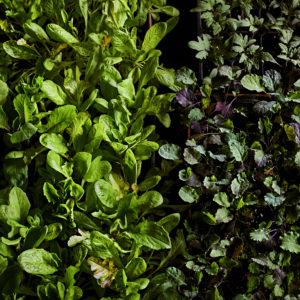
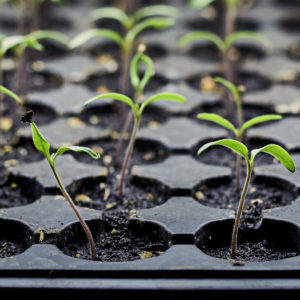
Plant life poses a perpetual need for moral deliberation.
For the Greeks more generally, the word for nature (physis) is derived from the word for plant (phyton) because the essence of nature is that it is like a plant, which grows in wildness toward its own completion and perfection.
Unlike other animals, and other people, plants produce the world in which we live, make life possible in every essential way, have never acted as predators or oppressors, and yet we still have to terminate their lives in order to continue our own, even under the most apparently ethical regimens of consumption, such as veganism. As we established before, however, there is no getting around this fact; no easy moral solution that would tell us once and for all how to eat well.
Marder suggests that “the question is how to linger in [the] unsettling condition,” of having to end life and subject others to suffering “without ‘getting over’ it, so that ethical sensibilities would be sharpened and enriched, rather than dismissed altogether.” For him and Coccia, the problem with veganism is that it says, once and for all, that certain forms of life are acceptable fare and others aren’t.
What if we accept that it is problematic to eat every time we sat down for dinner? What if we had to, as many meat eaters do, meditate for a bit before every meal on the lives that we have decided to end in order for us to live our own? If the ethics of eating were not simply about reducing the suffering of animals but also reflecting on the conditions of life for the plants we eat as well?
At the very least it would lead to a greater focus on the living and growing conditions of plants: on the wellbeing of farms, the labor of farmers, and that of the cooks that transform these beings into our meals — a concern not just about the presence of suffering on my plate and its elimination, but a more sustained consideration of the entire system of nourishment which daily constitutes my existence.
Reframing questions of eating around the centrality of plant life is not to — as Francione argued in his debate with Marder — derail the struggle for animal liberation, which is still an important and ethically necessary baseline for decisions around food.
It rather reframes the logic of the theory itself, and asks us not to focus our understanding of food on a reductive and subtractive approach, but by positing the inherent value of plant life and building a compounded sense of moral responsibility from there, viewing animals as beings which are themselves made out of plants, out of morally significant beings. Not of expanding the scope of moral concern in the sense of eliminating ever-expanding circles of forms of life from the dinner table, but in beginning and ending with a concern with nourishment itself, with the lives of plants. That is, approaching all food — its production and distribution — with a constant sense of reverence, gratitude, and care.
Rather than asking whether we should leave animals off the table, considering the ethics of eating plants can suggest that there is no need to even consider putting them there in the first place. It asks us, in other words, to practice attending to the Other, to the radically Other, the one whose suffering we cannot see, the one who needs our ethical consideration but perhaps cannot even ask for it.




